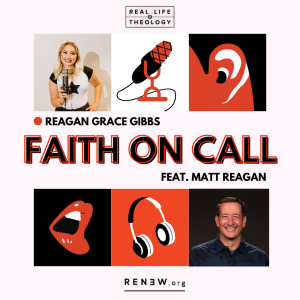
Scripture in Black and White: https://scriptureinblackandwhite.podbean.com/
Step Into Scripture: https://stepintoscripture.podbean.com/
Today’s episode will help us understand how to navigate complex political and ethical issues by grounding our decisions in biblical principles, focusing on the character of Christ, God’s commands, and the consideration of consequences.
In this episode, John and Daniel go into a framework for Christians to navigate political, cultural, and ethical issues. They emphasize the importance of basing decisions on the character and commands of God, rather than purely consequentialist thinking. Key topics include the sanctity of life, the abortion debate, and the process of aligning political stances with a biblical worldview. Through their discussion, they offer Christians practical tools and insights for making morally grounded decisions in a politically divided world.
Get the Book on Following Jesus in a Politically Divided World: https://a.co/d/35XLxSE
Key Takeaways
00:00 Introduction and Greetings
00:32 Discussing Right and Wrong
02:27 Philosophical Approaches to Ethics
05:07 Consequentialism and Its Pitfalls
07:22 Christian Perspective on Ethics
11:23 Teaching Ethics to Children
13:03 Sanctity of Life and Abortion Debate
25:45 Summarizing the Ethical Framework
Get the Premium Podcast Subscription: https://reallifetheologypodcast.supercast.com/
Check out RENEW.org for more articles and resources: https://renew.org/
View more information about this topic here: https://renew.org/product/following-jesus-in-a-politically-divided-world-an-interactive-guide-to-21-questions-on-christianity-and-politics/
See below for a more comprehensive discussion of this topic:
In this episode John Whittaker and Daniel McCoy discuss how Christians should approach political, cultural, and ethical issues through a biblical lens. They aim to help Christians ground their decisions in biblical principles, focusing on character, commands, and consequences.
The episode begins with a friendly exchange between John and Daniel, who reflect on their ongoing discussions about politics and faith, highlighted in their book on following Jesus in a divided world. Their goal is to understand how to honor Jesus over nationalistic values.
John introduces the main topic: developing a framework for addressing complex political and ethical issues. He stresses the importance of understanding the guiding principles behind decisions of right and wrong. Daniel notes that many people rely on gut feelings, which can align with biblical moral sense, but acknowledges that humans often struggle to consistently follow moral laws.
They discuss consequentialism, an ethical theory where the moral worth of an action is judged by its outcomes. Daniel explains various ethical theories—virtue ethics, Kantian deontological ethics, and consequentialism. He points out that many people are consequentialists, making decisions based on perceived benefits. However, he warns that while consequences matter, they should be grounded in fundamental principles like God’s character and commands.
John and Daniel explore how these ethical theories impact political decisions, noting that debates often revolve around consequentialist arguments. While the Bible acknowledges the importance of consequences, it emphasizes that moral decisions should be rooted in God’s commands and character. Daniel uses utilitarianism to illustrate the dangers of basing moral decisions solely on outcomes.
The discussion shifts to how Christians should navigate ethical issues by prioritizing Christ’s character and God’s commands. Daniel outlines a three-part approach: starting with the character of Christ, following God’s commandments, and considering the consequences. He emphasizes that Christians should base their ethical decisions on Jesus’ virtues and biblical values, avoiding arbitrary or outcome-based reasoning.
John adds that reflecting God’s character and obeying His commands align with our nature as beings made in God’s image, fulfilling our purpose. He notes that holiness and human nature complement each other.
They then apply this framework to the issue of abortion and the sanctity of human life. They start by examining God’s character, emphasizing His value of human life and children. They contrast this with the dehumanizing actions associated with evil, such as murder and lying.
The conversation highlights the biblical commandment "do not murder" as a clear directive against taking innocent life. Daniel addresses debates around personhood and fetal status, arguing that the Bible’s emphasis on the sanctity of human life should shape the Christian stance on abortion. He warns against redefining life to justify abortion.
Daniel critiques ethicist Michael Tooley’s argument, which separates human life from personhood to reduce stigma around abortion and infanticide. He points out the dangers of arbitrary criteria for personhood, which can lead to broader justifications for dehumanization.
John references Peter Kreeft’s book "The Unaborted Socrates," which argues against abortion by affirming the personhood of preborn babies. While Daniel agrees, he cautions against relying solely on personhood arguments and stresses the need to focus on biblical teachings about the sanctity of human life.
The episode wraps up with practical advice for applying the framework to ethical issues. Daniel suggests that Christians form ethical statements based on God’s character and commands while considering consequences. For example, statements might affirm the value of human life, obedience to the command not to murder, and support for pro-life laws, while showing compassion for those affected by abortion.
John underscores the importance of clear ethical statements for guiding Christians in their decisions, emphasizing that this framework, as detailed in their book, helps Christians navigate political and cultural issues biblically.
Interested in more content from RENEW? Sign up for our newsletter: https://renew.org/resources/newsletter-sign-up/
Follow us!
More Episodes
 2022-02-22
2022-02-22
 2020-07-09
2020-07-09
 2020-03-26
2020-03-26
 2020-03-12
2020-03-12
 2019-05-23
2019-05-23
 2019-05-10
2019-05-10
 2019-03-17
2019-03-17
 2018-12-15
2018-12-15
Create your
podcast in
minutes
- Full-featured podcast site
- Unlimited storage and bandwidth
- Comprehensive podcast stats
- Distribute to Apple Podcasts, Spotify, and more
- Make money with your podcast
It is Free
- Privacy Policy
- Cookie Policy
- Terms of Use
- Consent Preferences
- Copyright © 2015-2024 Podbean.com






